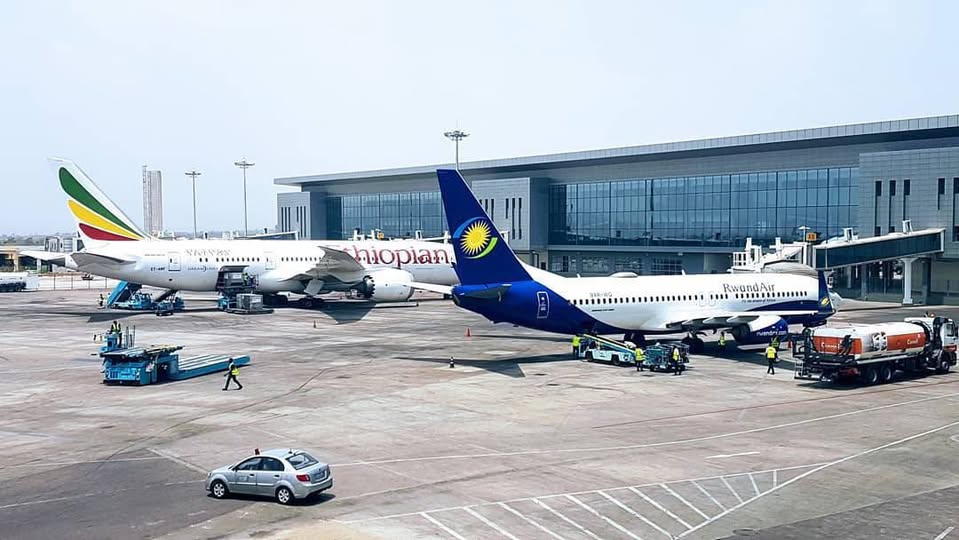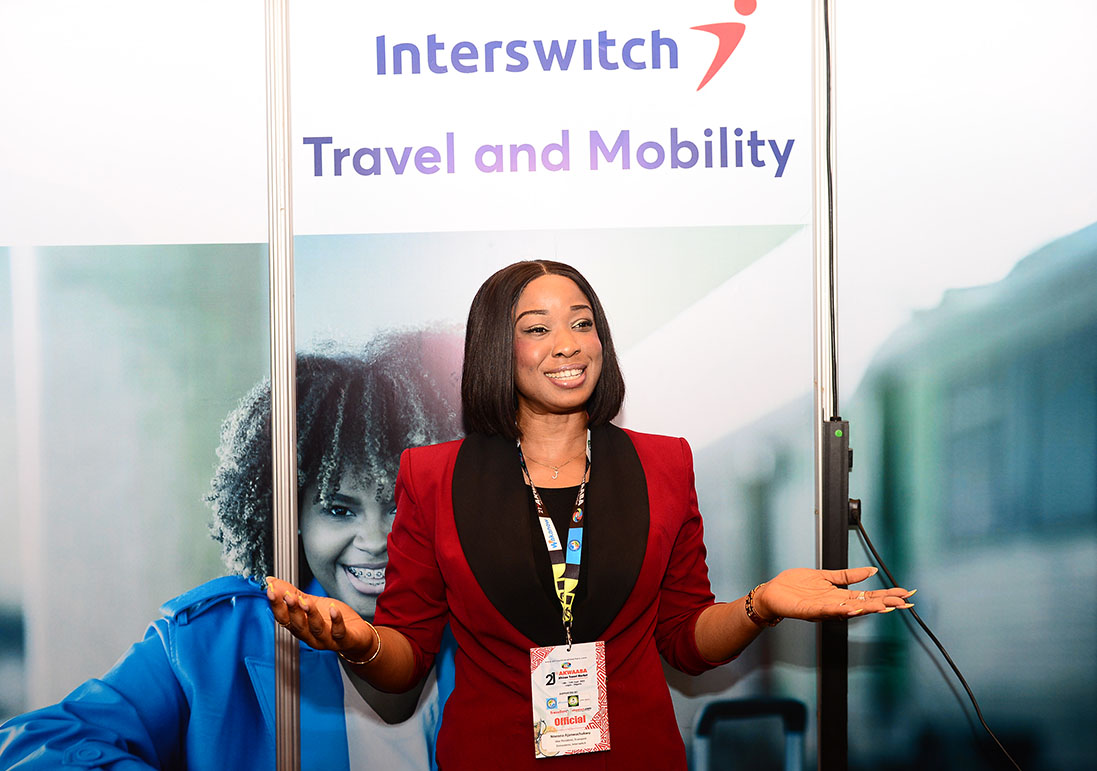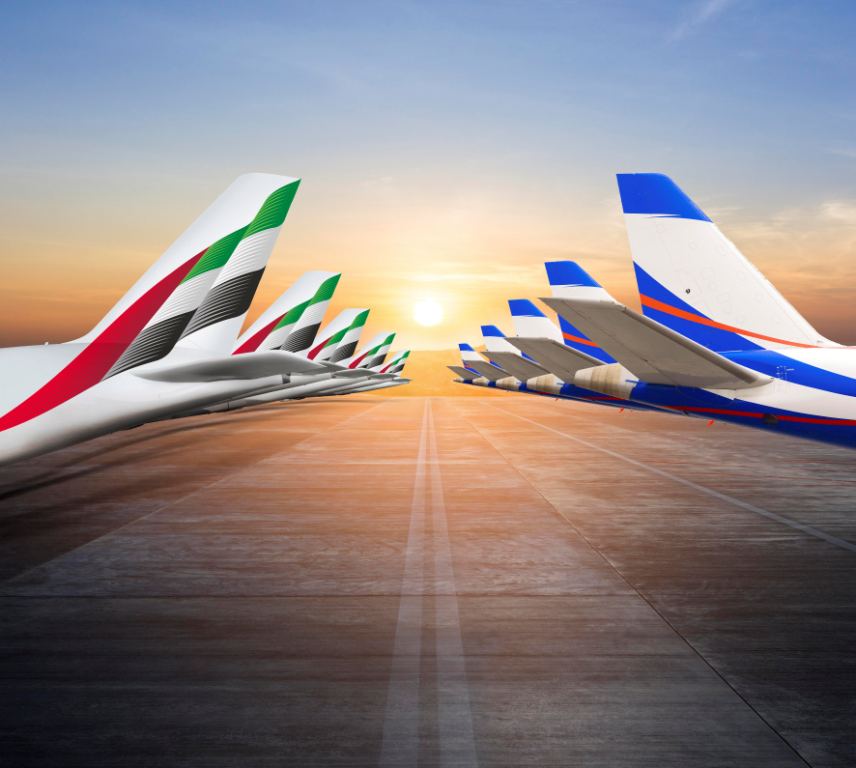Travel/Tourism
Growing The Rural Communities Through Sustainable Tourism


By Olukayode Kolawole
The responsibility to grow our rural communities is a shared one. In fact, majority of the tourism sites in Nigeria are located in most of the rural areas. Developments in these areas are not as fast-paced as urban communities.
Every year, rural development always finds its way to the government’s shopping list but somehow doesn’t make it to the priority list. Reasons for this might include, but not limited to, insufficient budget, lack of proper planning and measurable goals.
Most of the tourism sites in the country domicile within these rural communities. It is therefore surprising why we are investing hugely to develop these communities, considering the fact that we are making conscious efforts to grow our tourism and travel industry into a melting pot.
Sustainable tourism implies that a tourist who visits a place tries to make positive impact on the environment, society and economy as well. There are a good number of ways to do this: respect the people who call the location home, their culture and customs and the socio-economic system in the area.
While it is not surprising that often times people tend to confuse sustainable tourism with ecotourism, whereas ecotourism is actually an aspect of sustainable tourism; this article will focus on the economic importance of ecological tourism (ecotourism).
Tourism has many merits, no doubt. One of its demerits is that it causes damage on the environment.
Ecotourism, on the other hand, seeks to promote responsible travel to natural areas that protect the environment and advance the prosperity of the local people. It aims to provide a fun, relaxing vacation while protecting the surrounding ecosystem.
It often works to train and engage the participants in an eco-friendly lifestyle. The adverse effects of hotels, trails and other infrastructure are reduced through the use of either recycled supplies or abundantly existing local building materials, recycling, renewable sources of energy and safe disposal of waste and refuse.
If well managed, ecotourism will contribute actively to the maintenance of natural and cultural heritage, namely, inclusion of local and indigenous communities in its planning, development and operation, which reduces poverty and enhances intercultural & environmental understanding.
As a responsible traveller who is interested in minimizing the negative impacts of his tour and if you take special interest in local nature and cultures, ecotourism should appeal to you.
Remote areas, whether populated or unpopulated and are typically under some kind of environmental protection at different levels are destinations for ecotourism. Regulating the number of tourists and type of behaviour will ensure limited damage to the ecosystem as well as contribute to the minimization of its impact.
Tourists and residents of nearby communities need to be educated before departure through reading materials about the country they are visiting, location and the people, as well as a code of conduct for both the traveller and the industry. This information helps prepare the tourists.
Well-trained, multilingual naturalist guides serve to educate members of the neighbouring community, students and the larger community in the host country. To do so, entrance and lodge fees for nationals must be reduced and free educational travels for indigenous students and those living near the tourist attraction should be encouraged.
In addition, it also helps increase funds for ecological protection, investigation and education through a selection of apparatuses, including park entrance fees, tour companies, hotels, hotel booking portals like Jumia Travel, airlines and airport taxes and voluntary contributions.
National parks and other conservation areas will only subsist if there are “happy people” around their borders. The inclusion and participation of the local community is critical to the success of ecotourism.
These communities should receive proceeds and other physical benefits (potable water, roads, hospitals, etc.) from the conservation area and its tourist amenities.
Campgrounds, hotels, chaperon services, restaurants and other enterprises should be run by or in partnership with communities surrounding a park or other tourist destinations.
For ecotourism to be seen as a tool for rural development, total economic and political control must be given to the communal, township, cooperative, or entrepreneur.
This is the most challenging and time wasting idea in the economic equation and the one that foreign operators most often let it slip through the cracks or that they follow only partially or formally.
Tourism helps in building international understanding and world peace although this does not happen automatically; frequently in fact, tourism strengthens the economies of repressive and high-handed states.
Mass tourism pays scarce attention to the political structure of the host country or struggles within it, unless civil unrest escapes into outbreaks on tourists. Ecotourism demands a more holistic method to travel, one in which participants try to respect, study about and profit both the local environment and local communities.
In many emerging countries, rural residents around national parks and other ecotourism attractions are sealed in contests with the government and transnational corporations for control of the assets. Eco-tourists should therefore be sensitive to the host country’s political environment and social climate and need to contemplate the merits of global boycotts called for by those supportive of democratic reforms.
Olukayode Kolawole is a Head of PR & Marketing at Jumia Travel NG
Travel/Tourism
FAAN Launches Energy Efficient Shuttle to Support Abuja Airport

By Adedapo Adesanya
The Federal Airport Authority of Nigeria (FAAN) has unveiled 30 airport electric shuttle which will be used to complement airside and landside logistics.
The shuttle, which comprises 10 vehicles and 20 saloon cars, will cost N10,000 per passenger from the Nnamdi Azikiwe International Airport, Abuja to the City Centre.
Speaking at the event, the governing board chairman of FAAN, Mr Abdullahi Ganduje, said: “Electric vehicles offer clear operational and environmental benefits. They are cleaner, quieter and more energy-efficient, significantly reducing carbon emissions and helping FAAN minimise its ecological footprint. Their use will contribute to healthier airport environments and a more comfortable work and travel experience.
“From a logistics standpoint, electric vehicles also enhance monitoring, coordination and compliance. Their predictable performance and lower maintenance demands improve operational planning, accountability and service reliability. Ultimately, this translates into more efficient, transparent and passenger-friendly services.
“This initiative directly supports global sustainability targets, including International Civil Aviation Organisation’s goal of achieving net-zero carbon emissions by 2050. By embracing electric mobility, FAAN is positioning Nigerian airports to remain competitive, responsible and future-ready.”
Mr Ganduje pledged the commitment of the board to ensure that the initiative is utilised, maintained, and expanded to other airports in the country.
On her part, the managing director of FAAN, Mrs Olubunmi Kuku noted that the agency has secured approval to deploy 100 electric vehicles to operate as airport shuttles at Lagos and Abuja airports.
“We have secured approval to deploy 100 Electric Vehicles (EVs) to operate as airport shuttles at both Murtala Mohammed International Airport, Lagos, and Nnamdi Azikiwe International Airport, Abuja. It is a monumental step towards greening our operations and reducing our carbon footprint.”
“We proudly begin this journey with the first phase: the launch of these 10 state-of-the-art electric shuttle buses. They represent more than just transport; they symbolise cleaner air, quieter terminals, and a to pioneering sustainable infrastructure in Nigerian aviation”.
She expressed optimism that the initiative would be replicated across all airports in the country.
The head of Fleet Operations of Possible EVS, Mrs Abimbola Gyer while stating that the transport fare would be subsidised for passengers, added that operations would commence from 7am to 7pm daily.
“We partner with NEV Electric, the manufacturer of the electric buses. We would be moving passengers from the airport to the city centre at the rate of N10,000 and as demand continues, we will expand our hub. The operations will start from 7 a.m. to 7 p.m daily,” she noted.
Travel/Tourism
Quickteller Travel Secures IATA Certification

By Modupe Gbadeyanka
The travel and tourism service powered by Interswitch, Quickteller Travel, has been issued a certification from the International Air Transport Association (IATA).
With IATA certification, Quickteller Travel is now fully equipped to connect African travellers to global destinations, support airlines and partners with reliable distribution and settlement, and set a new standard for trusted, digitally enabled travel across the continent.
The IATA accreditation reinforces Quickteller Travel’s operational credibility, compliance standards, and ability to deliver secure, efficient, and globally recognised travel services.
It also strengthens the platform’s positioning as a reliable partner for airline bookings, corporate travel management, and end-to-end travel solutions across Africa and beyond.
The certification is a milestone that places the brand among a global network of trusted and accredited travel service providers.
This achievement comes at a time when Africa’s travel and tourism sector is experiencing renewed growth, driven by increased business travel, regional connectivity, and digital adoption.
With IATA certification, Quickteller Travel is poised to offer individuals, SMEs, corporate organisations, airlines, and other travel stakeholders a seamless digital experience, supported by Interswitch’s trusted payment infrastructure.
Integrated into the broader Quickteller and Interswitch ecosystem, Quickteller Travel combines global accreditation with local insight, offering African travellers and businesses a secure, seamless, and digitally empowered experience.
The Vice President for Transport Ecosystem at Interswitch, Ms Nnenna Ajanwachuku, said, “The IATA certification is a strong validation of Quickteller Travel’s operational standards, governance, and commitment to excellence. It enhances trust for travellers, corporate partners, and global airline stakeholders who rely on accredited platforms for secure and transparent travel transactions.
“For Interswitch, this milestone reinforces our mission to build technology-led solutions that unlock access, simplify commerce, and connect Africa to the global economy.”
Ms Ajanwachuku added that the approval would enable Quickteller Travel to deepen partnerships with airlines and travel service providers while offering customers greater confidence, choice, and value.
“Quickteller Travel is not just a booking platform; it is part of an ecosystem designed to make travel more accessible, reliable, and digitally enabled for Africans. Powered by Interswitch’s heritage of trust and innovation, we are building a platform that meets global standards while responding to local travel needs,” she said.
Travel/Tourism
Emirates, Air Peace Enhance Seamless Global Connectivity

By Modupe Gbadeyanka
Two key players in the Nigerian aviation industry, Emirates and Air Peace, have activated a bilateral interline agreement aimed to expand air connectivity between Africa, the United Arab Emirates (UAE), and London.
The two airline operators are building on their existing partnership to offer their passengers frictionless, single-ticket travel and with through-checked baggage, on select routes, resulting in greater travel comfort and convenience for customers.
Beyond the 13 cities in Nigeria already available for Emirates passengers on Air Peace’s network, the enhanced interline agreement now enables travellers to connect with Banjul in Gambia and Dakar in Senegal, both via Abidjan; and with Freetown in Sierra Leone and Monrovia in Liberia, both via Accra. The additional gateways allow more passengers in Africa to access Emirates world-class product and services, and vast global network.
The agreement allows Air Peace to connect its extensive West and Central African route system into Emirates’ hub in Dubai, and on key destinations including London Heathrow, London Gatwick and London Stansted, Abidjan, Accra and, of course, Lagos.
With huge demand for travel between Nigeria and the United Kingdom, providing Air Peace passengers with increased choice, flexibility, and global reach.
Emirates operates a Boeing 777-300ER on its Dubai-Lagos route, providing travellers with one of the best experiences in the sky.
Passengers can dine on regionally inspired multi-course menus developed by a team of award-winning chefs complemented by a wide selection of premium beverages, while tuning in to over 6,500 channels of global entertainment – including Nollywood classics – on ice, Emirates’ award-winning inflight entertainment system.
As one of only two airlines operating a First Class cabin into Nigeria, Emirates offers an unrivalled travel experience defined by comfort, privacy and luxurious touches.
With a fleet of over 50 aircraft including Boeing 777s, Boeing 737s, Embraers, Air Peace operates an expanding network of domestic, regional, and international services, connecting major cities across Africa and beyond.
The airline remains committed to strengthening intra-African connectivity, supporting trade and tourism, and contributing meaningfully to economic development across the continent.
“Enhancing our interline partnership with Air Peace allows us to expand our footprint across more of Africa, creating new opportunities for people to fly better with Emirates, while helping international tourists explore more of the region, via Lagos.
“We remain committed to working with strategic partners such as Air Peace to further strengthen Nigeria’s aviation, tourism and trade sectors,” the Chief Commercial Officer for Emirates, Mr Adnan Kazim, said.
His counterpart at Air Peace, Nowel Ngala, while commenting, said, “This interline agreement with Emirates represents a major step in Air Peace’s strategic vision to connect Africa more efficiently to global markets.
“By combining our strong regional presence with Emirates’ extensive international network, we are delivering seamless connectivity, improved travel experience, and greater access to key global destinations for African travellers. This partnership further reinforces Air Peace’s role as a critical bridge between Africa and the global aviation ecosystem.”
-

 Feature/OPED6 years ago
Feature/OPED6 years agoDavos was Different this year
-
Travel/Tourism9 years ago
Lagos Seals Western Lodge Hotel In Ikorodu
-

 Showbiz3 years ago
Showbiz3 years agoEstranged Lover Releases Videos of Empress Njamah Bathing
-

 Banking8 years ago
Banking8 years agoSort Codes of GTBank Branches in Nigeria
-

 Economy3 years ago
Economy3 years agoSubsidy Removal: CNG at N130 Per Litre Cheaper Than Petrol—IPMAN
-

 Banking3 years ago
Banking3 years agoSort Codes of UBA Branches in Nigeria
-

 Banking3 years ago
Banking3 years agoFirst Bank Announces Planned Downtime
-

 Sports3 years ago
Sports3 years agoHighest Paid Nigerian Footballer – How Much Do Nigerian Footballers Earn











